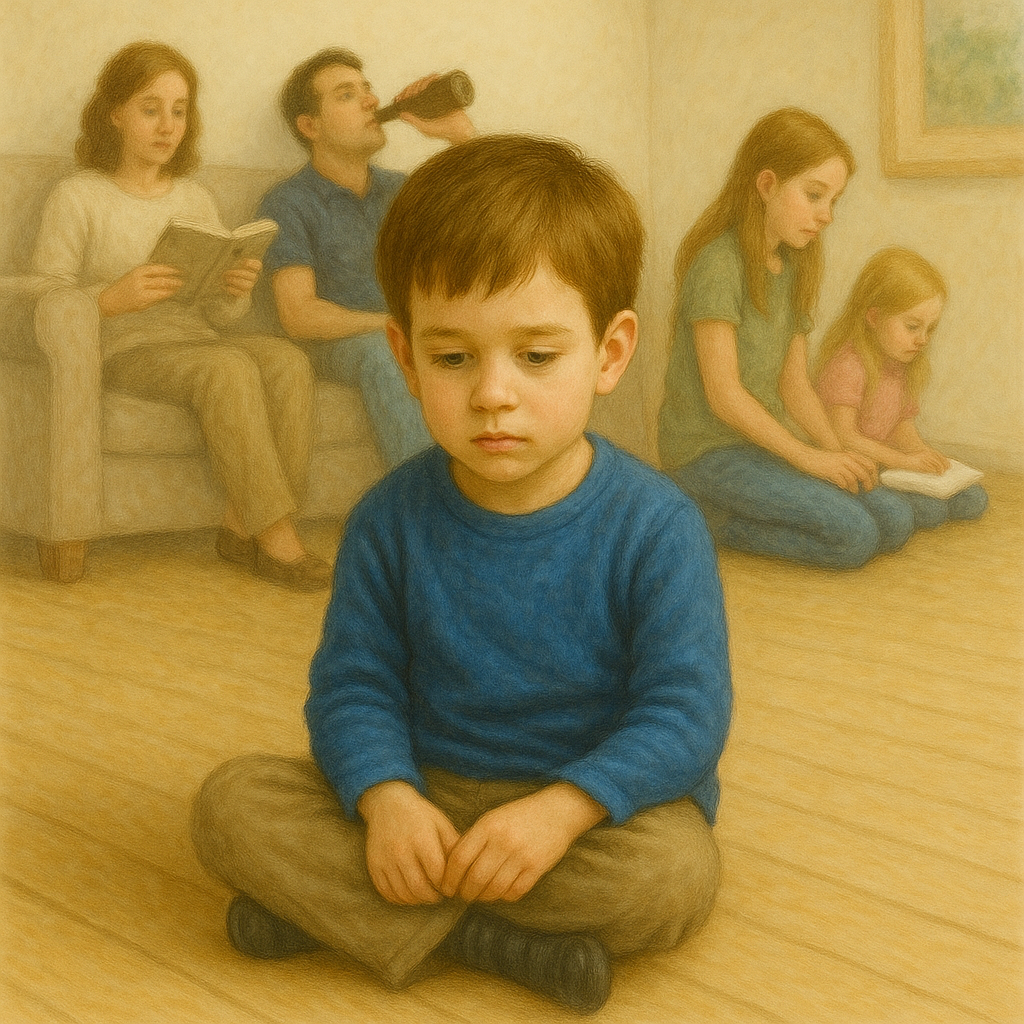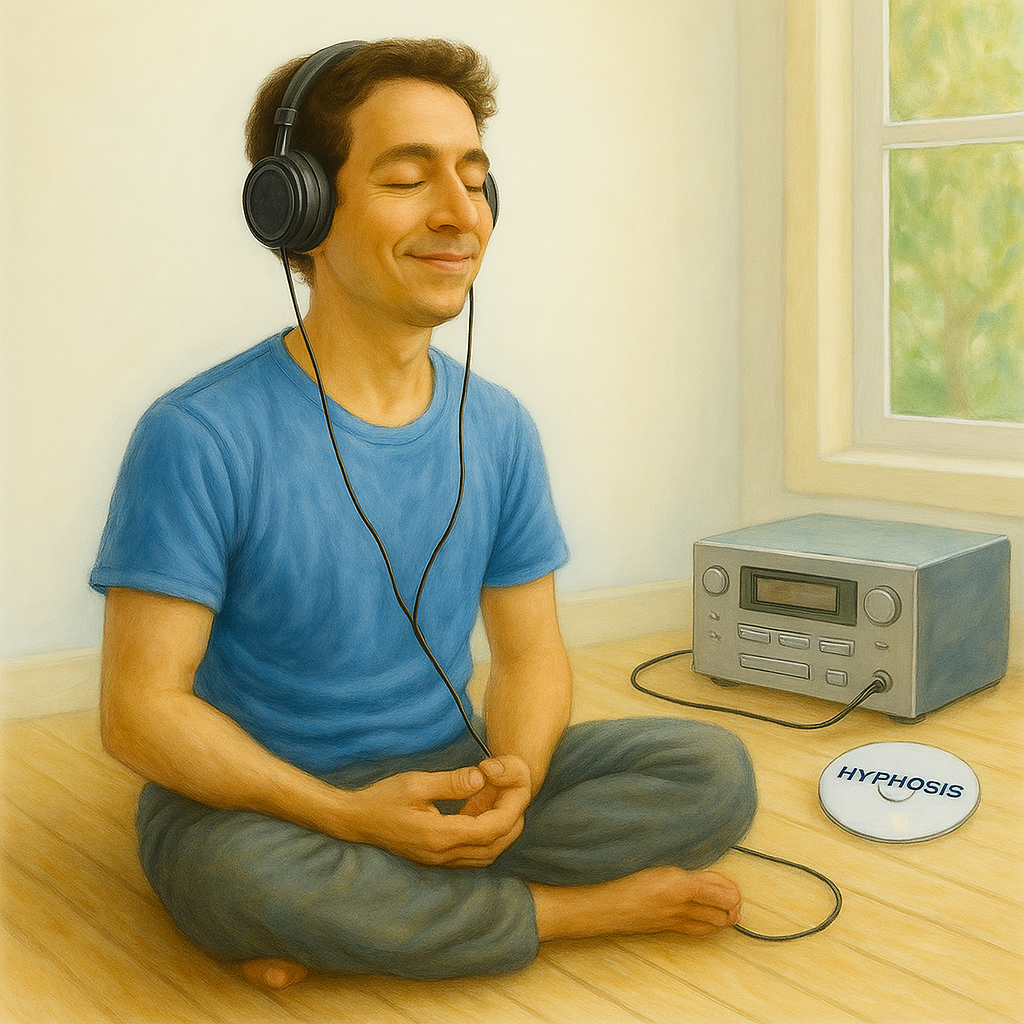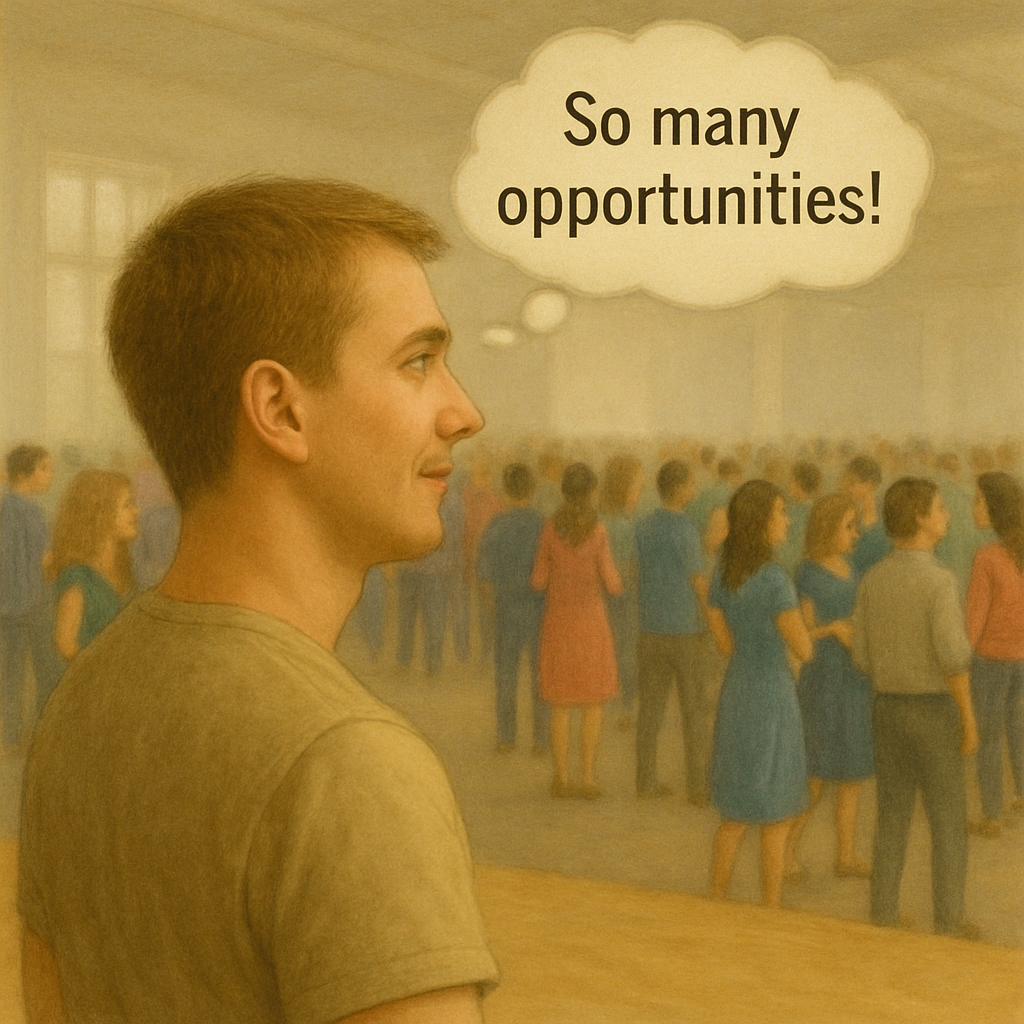
When I was a kid, my dad drank.
A lot.
Every night.
As far back as I can remember, as soon as he came home from work, it was straight to the bottle.
And even as a young kid in elementary school, I learned the difference between “drunk dad” and “not drunk dad.”
And drunk had anger issues.
There was never much actual rage, but it was always just beneath the surface.
Ready to explode.
First Problem
I was a middle child.
Older sister, who was the good kid.
Younger sister, who was the “not good” kid.
Not behaviorally, but in other ways.
So both, as I felt in my young developing brain, got much more attention than me.
I felt left behind.
Abandoned.
My drunk dad was kind of the drunken potentially angry elephant in the room.
Nobody talked about it.
It was just kind of there.
Hanging in the air like a problem nobody wanted to address.
Because if you addressed it, you’d have to acknowledge it.
And if you acknowledged it, you’ve have to talk about it.
That was just out of the question.
Pivotal Experience

One night in particular, my dad was more angry than usual.
He was in the kitchen, going back and forth to the patio to cook his Saturday night steak.
He grew up in the Great Depression, so having meat for dinner seemed to be a source of pride for him.
Anyhow, I kept trying to talk to him.
To play with him.
But he wouldn’t have any of that.
His anger was fierce.
Not physically violent, never physically violent.
But that was the hidden threat.
At least in my young brain.
My mom tried to explain what the deal was.
It didn’t work.
She gave me vague words that described how people get angry, the world is difficult.
I don’t remember much.
All I remember was it made the situation worse.
All Alone

Made me feel more isolated.
My mom’s reaction to the drunken elephant in the room was to mentally check out.
“Not my problem. That’s his deal,” her actions would say.
Naturally, I figured it must have something to do with me.
I must be broken.
That’s why I was left behind.
That’s why he was always so angry.
I must be the problem.
This is how brains work.
We make causal connections between completely unrelated events.
This dynamic plagued me all my adult life.
I’m broken.
Nobody wants anything to do with me.
If I try to call attention to myself, anger will come in response.
Not Far From The Tree

And like a good son, I modeled my father’s behavior perfectly.
As soon as I could, as soon as I could get my hands on some booze, I drank every night.
Not a problem in high school and college.
Or at least you can pretend it’s not.
It’s a social lubricant.
It’s socially accepted.
But when I got a job, I fell into the same patterns.
Home from work?
Grab the bottle.
Cover up the deep feeling of inadequacy.
Of loneliness.
Of being broken.
And I fucking hated myself for it.
I was turning into him, and I hated him.
But I couldn’t quit.
The worst “stuck state” imaginable.
I’d try, I’d fail, and that would verify how broken I was.
But if I accepted that my fate was the same as his, drink every night to cover up the pain for the rest of my life, that would be even worse.
Escape At All Costs

So by hook and by crook, I figured out a way to stop.
Cold turkey.
For good.
Haven’t looked back.
And I thought, I’d hoped that this would “cure” me.
That this would let me forever leave behind those deep feelings of brokenness.
But it made them worse.
Now I had a sober brain 24/7.
I couldn’t put those demons in the back of my mind and not think about them until I got home and hit the bottle.
I had to face them.
I had to acknowledge them.
Keep Charging Forward

That’s why I got into NLP and hypnosis.
I naively figured that if I can use NLP somehow to “fix” the brokenness inside me, other people would finally accept me.
I wouldn’t be an outsider.
People wouldn’t get angry when I tried to get some attention for myself.
When I tried to assert myself.
But that was based on a false understanding.
I wasn’t broken at all.
There was absolutely nothing wrong with me.
That’s the first realization.
That all that crap that happened when I was a kid had absolutely nothing to do with me.
Kind of like if some crazy person starts yelling at you on the street.
Nobody thinks, “Oh No! What’s wrong with me?”
Normal people think, “What the heck is THAT guy’s problem?”
That’s the shift that needs to occur.
To look back at all those childhood memories, born of dysfunctional alcoholism, and realize they had absolutely NOTHING to do with me.
I just happened to be there when they happened.
The anger, the detachment, the inability to discuss serious issues, all of that had nothing to do with me.
That’s the first step.
But realizing this won’t do much.
An intellectual understanding won’t help.
It need to sink down to the subconscious level.
The intuitive level.
The emotional level.
And that took some work.
But I didn’t give up.
And then something shifted.
It’s like what Marcus Aurelius said in Meditations.
Marcus was a stoic philosopher and Emperor of Rome.
The quote:
“The impediment to action advances action. What stands in the way becomes the way.”
Or, as commonly described, “the obstacle is the way.”
Free At Last

Before the transition, that dynamic was the major obstacle to happiness.
That I was a broken-inside, forever doomed to stay on the sidelines of life because nobody wanted anything to do with me.
But when I slowly realized, on a deep subconscious level, that it was not true, that I wasn’t broken, I realized something.
Everybody has that dynamic.
Everybody is carrying around some kind of dysfunction from childhood.
Everybody feels broken to some extent.
Everybody feels like they don’t belong to some extent.
Everybody is afraid to assert themselves to some extent.
And when you realize that you aren’t broken, and that everybody feels as though they are, this obstacle becomes the way.
The path to happiness.
Because behind every friendly face you want to start a conversation with isn’t potential rejection or anger.
It’s somebody just like you who wants to connect.
Somebody who enjoys conversations with friendly people like you.
Somebody who desperately wants somebody else to go first.
And this makes social situations a kajillion times easier and more enjoyable.
Consider that this is most important transition you can make in your life.
Secrets To Social Power

Because everything you want in life comes from other people.
And if you’re afraid to talk to them, you won’t get it, whatever it is.
But if you ditch the baggage, and understand this truth about human nature, you won’t be afraid to talk to them.
You’ll be eager to.
And you will get what you want, whatever it is.
Sadly, most people will not ever make this transition.
Most people will never realize there is a transition to be made.
Most will just accept that this is the way life is.
Which is why most people live lives of quiet desperation.
Don’t be one of them.
Make a decision, today, right now, to make the shift.
First, let go of blame.
Not easy but necessary.
Second, realize that all that stuff that happened to you when you were a kid had nothing to do with you.
It was NOT your fault.
Third, find some daily exercise, or drills, or techniques to slowly sink that rational understanding, that it wasn’t your fault, down in to your subconscious.
And when that shift happens, your life begins.
Whatever you want is yours.